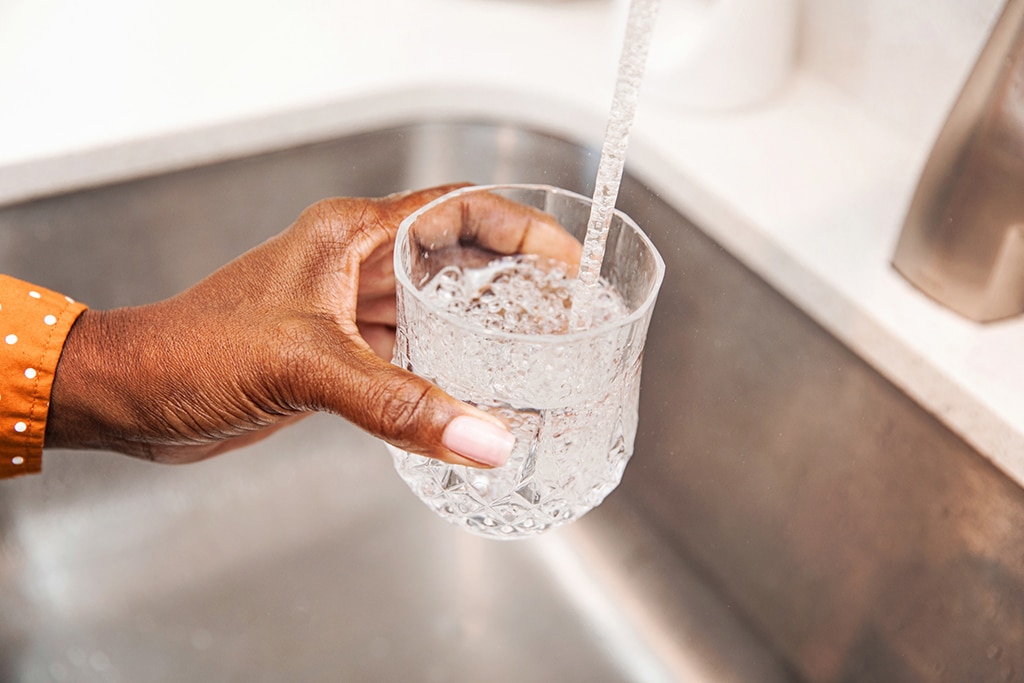
The Different Types Of Water Filtration Systems Explained | Conway, SC
Water constitutes about 60% of the human body and is essential for living a healthy life. Unfortunately, not everyone can access clean, fresh water. However, with water filtration systems, more homes can access clean and safe water.
Water filtration systems remove impurities like sediment, bacteria, fungi, toxic chemicals, and metals to give you clean water for consumption and household use. Understanding the different types of filtration systems will help you make a more informed decision when choosing one for your home.
In today’s article, we’ll highlight the different types of water filtration systems, explore how they work, and determine whether they fit your home or business.
Mechanical Filters
Mechanical filters are the most basic type of water filtration system on the market. These filtration systems use a screen with a mesh or perforated barrier to remove dirt, debris, and other solid particles from your water supply. Advanced mechanical filters trap these solid particles using synthetic foam or floss fiber.
Mechanical filters are easy to set up and inexpensive. However, they don’t filter microscopic contaminants like bacteria, making them largely ineffective. Some homeowners use mechanical filtration systems for their pre-filtration before feeding water to a more effective filter.
Activated Carbon Fiber Filtration Systems
These are common water filtration systems found in many households. These systems use a sheet of activated carbon that extracts impurities and contaminants from water. The sheets consist of carbon granules that provide a large surface area for the absorption of these unwanted materials. To give you perspective, a single gram of activated carbon has a surface area of 1,000 square meters or 10,746 feet because of its porosity.
Activated carbon uses chemical adsorption to draw pollutants from the water into its substratum pore framework. The pollutant molecules attach to the activated carbon while pure water flows through the screen. Aside from water filtering, carbon filtration systems are also used to filter air and agricultural gas processing. You’ll also find layers of activated carbon in respiratory helmets and regeneration facilities for precious metals like gold and silver.
Activated carbon is incredibly effective at removing impurities from water, including detergents, iodine, radon, Volatile organic compounds (VOCs), and chlorine residuals. It also improves the taste and odor so you can have tasteless and odorless drinking water. Unfortunately, activated carbon also removes desirable minerals like sodium, nitrates, and useful microbes, leaving you with less nourishing water.
Reverse Osmosis (RO) Filtration Systems
Reverse osmosis filters use a process known as reverse osmosis to remove impurities from your water supply. It’s one of the most effective methods for filtering water, ensuring clean and great-tasting water.
The process involves forcing water through a semipermeable membrane. The water will move from a region of less concentration (contaminated water) to a region of more concentration (clean water). These two regions are separated by a semipermeable membrane that keeps out contaminants and only allows pure water through.
Most RO filtration systems consist of a mechanical filter for the pre-filtration stage to remove solid pollutants. The water then moves through an activated carbon sheet that removes VOCs and chlorine. Lastly, it passes through the semipermeable membrane, removing 98% of the total dissolved solids (TDS).
Reverse osmosis is among the most effective water filtration systems for removing major pollutants and harmful chemicals like lead and asbestos from water. However, these systems waste much more water than they produce and remove healthy minerals from water. They’re also expensive to install and require regular expensive maintenance.
Ultraviolet Filtration Systems
As the name implies, an ultraviolet filtration water filtration system uses ultraviolet rays to destroy bacteria and other disease-causing microbes in the water. These systems use special lamps that emit UV radiation at specific wavelengths called germicidal frequency.
This ultraviolet radiation passes through the water and alters the genetic codes of the microbes, precluding their ability to reproduce and function. This hinders their ability to infect micro-organisms since they can’t spread to the rest of the body. Eventually, they die, and you get clean water for your consumption.
Ultraviolet filtration systems destroy 99.99% of bacteria and viruses in the water. They’re also cost-effective since they only require an ultraviolet lamp you replace annually. They also have minimal energy requirements and take a short time to filter water for consumption.
However, these water filtration systems don’t remove harmful chemicals and heavy metals from water. They only incapacitate bacteria and fungi, making them unsuitable for chemically contaminated water. They also don’t remove the taste and odor from water and only work with clear water. Ultraviolet light cannot penetrate murky water. However, you can use a pre-filtration system to remove the muck and have clear water ready for UV filtration.
Ion Exchange Filtration System
Ion exchange systems are hands down the most effective filtration systems for homes and businesses. These systems contain a long column of polymer resin consisting of beads. The beads are numerous to increase the surface area for ion exchange.
The resin consists of beads with charges opposite to that of common pollutants in the water. For instance, the beds may contain positively charged ions to attract particles with negatively charged ions inside the water. When water passes through the resin, it attracts all the pollutants, leaving fresh, clean water to continue down the line. It also passes through a sheet of activated carbon that captures the water’s remaining VOCs and chlorine elements.
Ion exchange filtration systems are great for softening hard water and removing inorganics from your water supply. They’re also inexpensive compared to other filtration systems and regenerate, requiring little maintenance. However, these water filtration systems don’t remove bacteria and other microbes from the water. They also translate to high operating costs, and sometimes the beds create resin particles that culture harmful bacteria.
Install a Water Filtration System Today
Picking the right water filtration system ensures you have a clean and safe water supply for your home. This clean water is great not only for cooking, laundry, and dishes but also for drinking. Consult a plumbing expert if you’re unsure about the type of filtration system to choose for your home. At Benjamin Franklin Plumbing of Myrtle Beach, we are the leading experts in water filtration systems. Our technicians have years of training and experience handling different water filtration systems. Contact us today to schedule a water filtration system installation for your home.
See our most recent blog on this topic here.

 843.213.6611
843.213.6611